Groundwater or bore water is the most important source of water in India. There are many states in India where lack lakes and other types of water bodies. Therefore, the rainwater that seeps through raises the level of bore water.
In many parts of this country, bore water is used for washing, cleaning, and drinking. But, drinking bore water directly is not possible as the water is hard and full of contamination. In addition, there can be heavy metals like arsenic, lead, and other materials like mud, etc.
Also, the water can have microorganisms like viruses and bacteria. The awful odor of the bore water will also stop you from drinking bore water directly. So, if you are drinking bore water, installing the best water purifier in India is the most suitable way to purify borewell water in our homes.
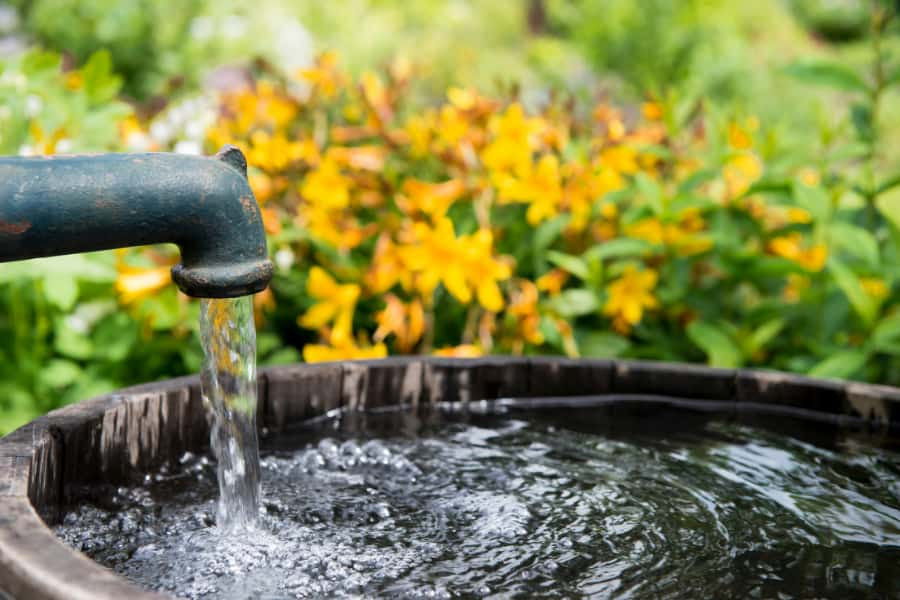
Why Should You Not Drink or Consume Borewell Water Directly?
Though borewell water is used for drinking and cooking in many parts of the country, using it directly is not the right way of consuming it. Borewell water gets contaminated easily, specifically if you live near industrial or agricultural land.
Different types of chemicals, fertilizers, pesticides, industrial waste, etc., seep through the ground and contaminate the groundwater. When you pump the water from the ground through the borewell, it is the hard water with contamination.
Drinking borewell water directly can cause severe health issues. The presence of arsenic, iron, and lead in the borewell water can cause different skin diseases, stomach ailments, etc., which may lead to death also. Besides, contaminated water can be the reason for diseases like jaundice, diarrhea, etc.
So, it is always recommended to get the borewell water always tested in the water testing laboratories. Also, if you depend much on this water, you should install a powerful water purification system at the house to have safe and clean drinking water.
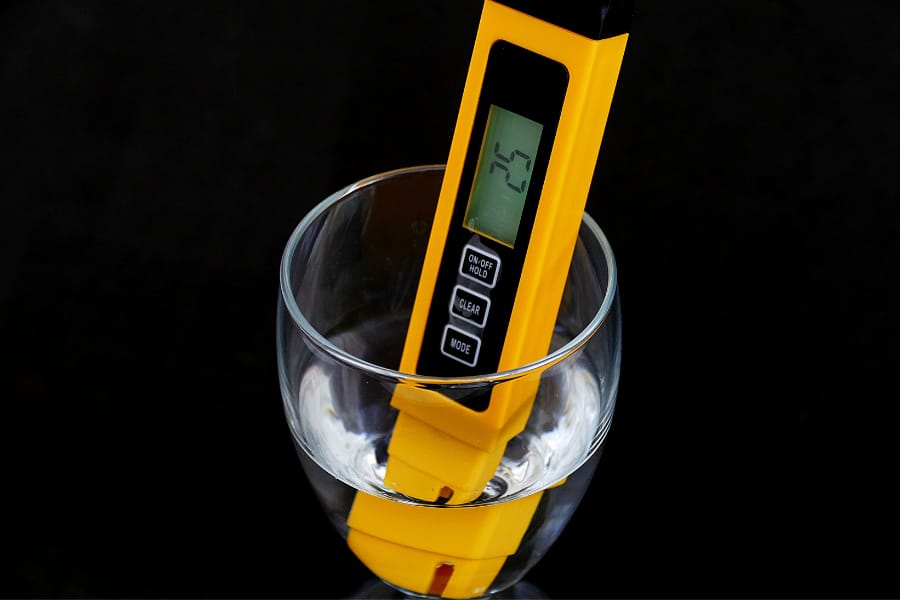
How to Know If Borewell Water Is Unsafe for Consumption?
Borewell water is full of contamination as it contains lots of impurities. So, it is quite unsafe for drinking and cooking. To know whether the borewell water is safe or not, the only way is testing.
TDS is an important parameter that denotes the hardness and quality of water. Read the drinking water TDS level chart to know the safe range of TDS for the consumption of water. Then use a TDS meter to measure it in the borewell water at your home.
You cannot measure other impurities without sophisticated instruments at your home. You can test your water in the laboratory, then check the parameters and take the necessary steps that we explain below.
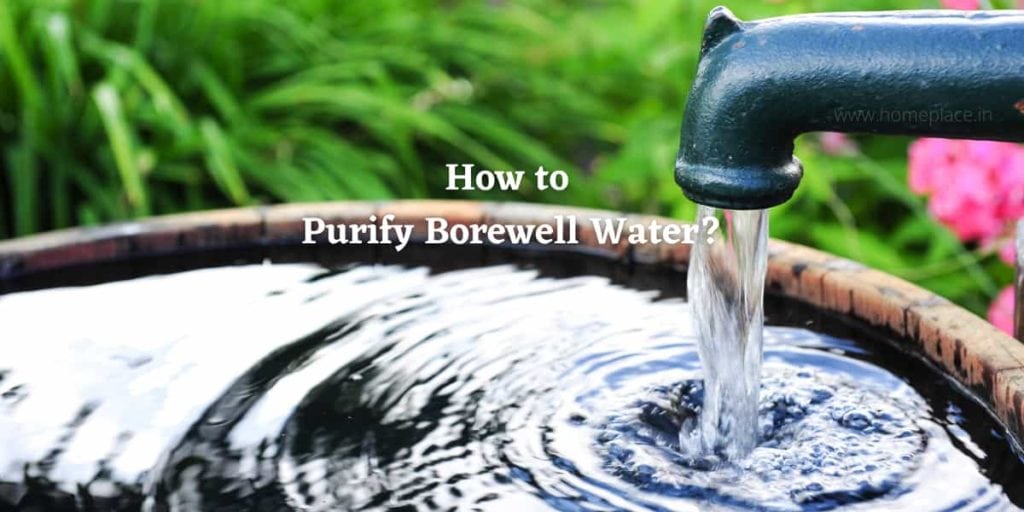
How to Purify Borewell Water?
Before knowing how to purify borewell water at home, it is important to know about the types of impurities in the groundwater. Usually, here are some of the contaminations that are found in the borewell water, like-
- Mud
- Awful smell
- Hardness
- Microorganisms (virus and bacteria)
- Iron
- Heavy metals like Calcium, Magnesium
- Impurities like Arsenic, Lead
Removing those is the only way to have purified drinking water. And to do that, having the best borewell water purifier is the most important step you can take.
Here, we have discussed the methods of purifying borewell water at home. Read on to know more-
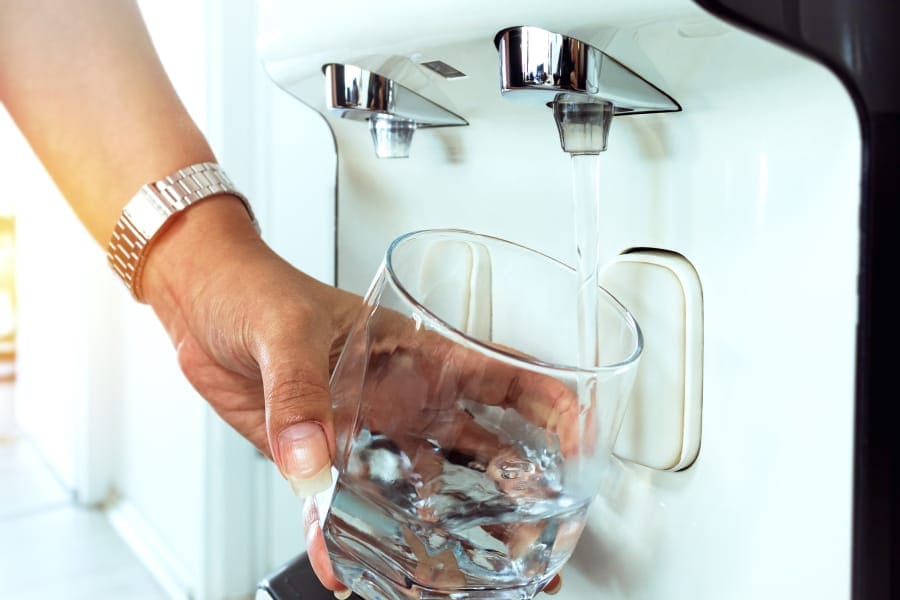
Install the Top-Quality Water Purifier
This is the most important tip to remove impurities from borewell water. The Reverse Osmosis Water Purifier is the appropriate thing to install in your house. A water purifier is an ultimate solution for removing contaminants, disgusting odor, maintaining the color and taste of borewell water for the entire household.
An RO water purifier can remove arsenic, leads, iron, or other chemicals from the hard water and make it soft water for drinking. The RO rejected water can also be used for different purposes like watering the plant, using it in the toilet, cleaning floors, etc. However, you can use the RO purified water only for drinking, cooking, and bathing.
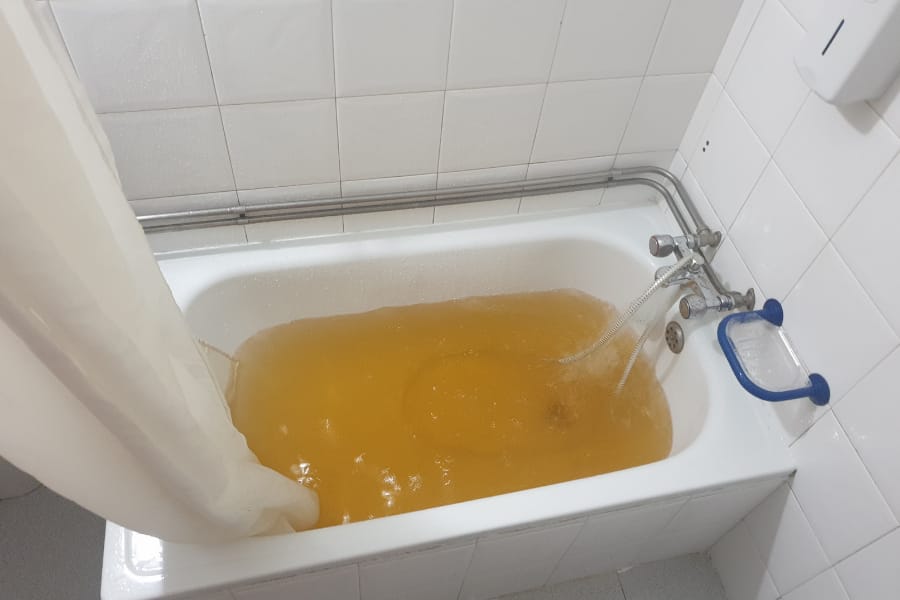
Remove Iron from Borewell Water
Iron is one of the heavy metals that can be present in borewell water. It can cause several health issues. Removing iron from the borewell water is not difficult at all and can be conducted at home. You need to call an expert who can use the oxidation method so that the iron salts become insoluble and sit under the water.
In the next step, you need to filter the water to purify it. For oxidation, several methods can be followed, like aeration of well water, ozonization, or chlorination of the entire well.
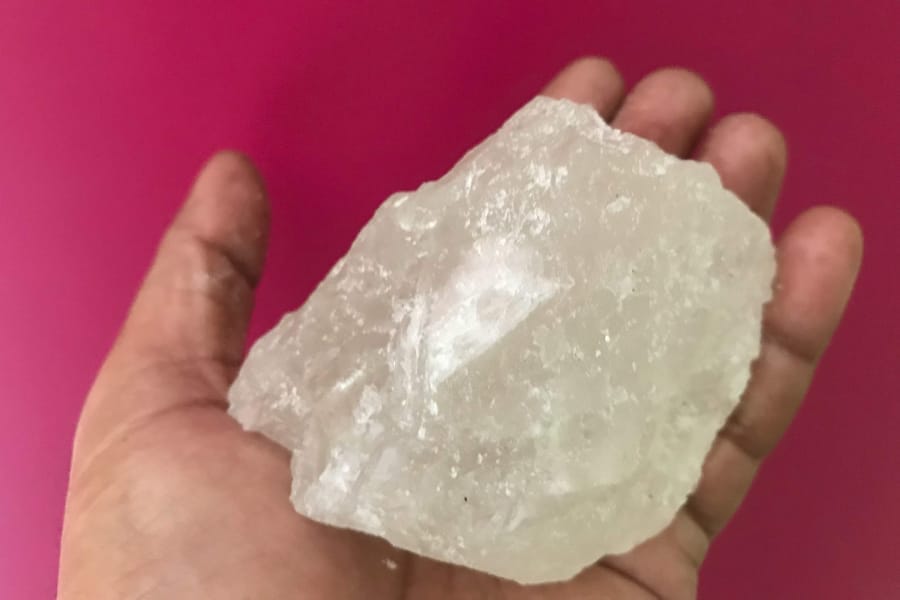
Using Alum to Purify Borewell Water
One of the most common issues with borewell water is the mixing of mud into the water. To purify muddy water from the well, you can use Aluminium Sulphate (Alum). You can either pour Alum directly into the open well or mix it into the water in the tank where you store borewell water.
Alum is a kind of an element that is used for the primary settlement of sediment and purifying the water. Knowing the quantity of using Alum will help you to purify drinking water quickly. For example, 50gms of Alum is perfect for 5 to 10 liters of water.
If you are using it directly to the well, 50gms alum can be used for 6 meters. Leave the water for about 24 hours, and the dirt and mud will sit at the bottom. If there are no other impurities in the water than dirt and mud, you can go through a simple cartridge filter before using it.
Treat Borewell Water for Awful Odor
It is quite common that borewell water gets a bad smell that keeps you away from using it. It can be the smell of rotten eggs because of the presence of sulfur in the groundwater. To remove that smell from borewell water and make it drinkable, you need to install a water purification system.
Besides that, you also need to follow certain methods of borewell maintenance like cleaning, scanning, drilling, motor repairing, re-bore, etc.
So, here we have discussed borewell water and how to purify it for drinking and cooking. Using activated charcoal filters can eliminate the water’s impurities and give the right smell and taste to it.
Related Posts:
- How to Clean RO Water Purifier?
- Aqua Ultra Water Purifier Review
- How to Hide the Water Purifier in Your Kitchen?
- How to Use Water Purifier’s Wastewater?
- Kent vs. Pureit vs. Aquaguard Water Purifiers
